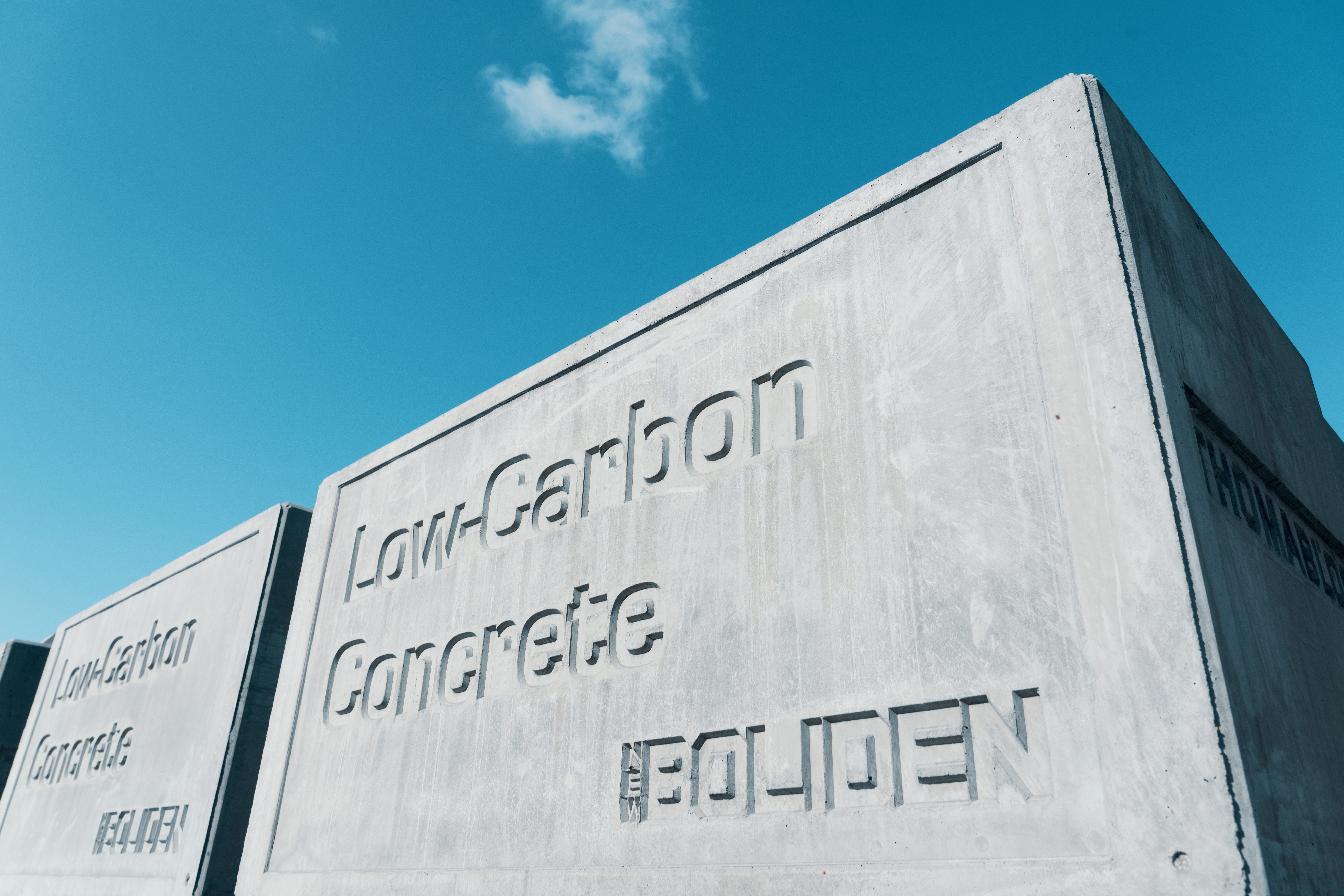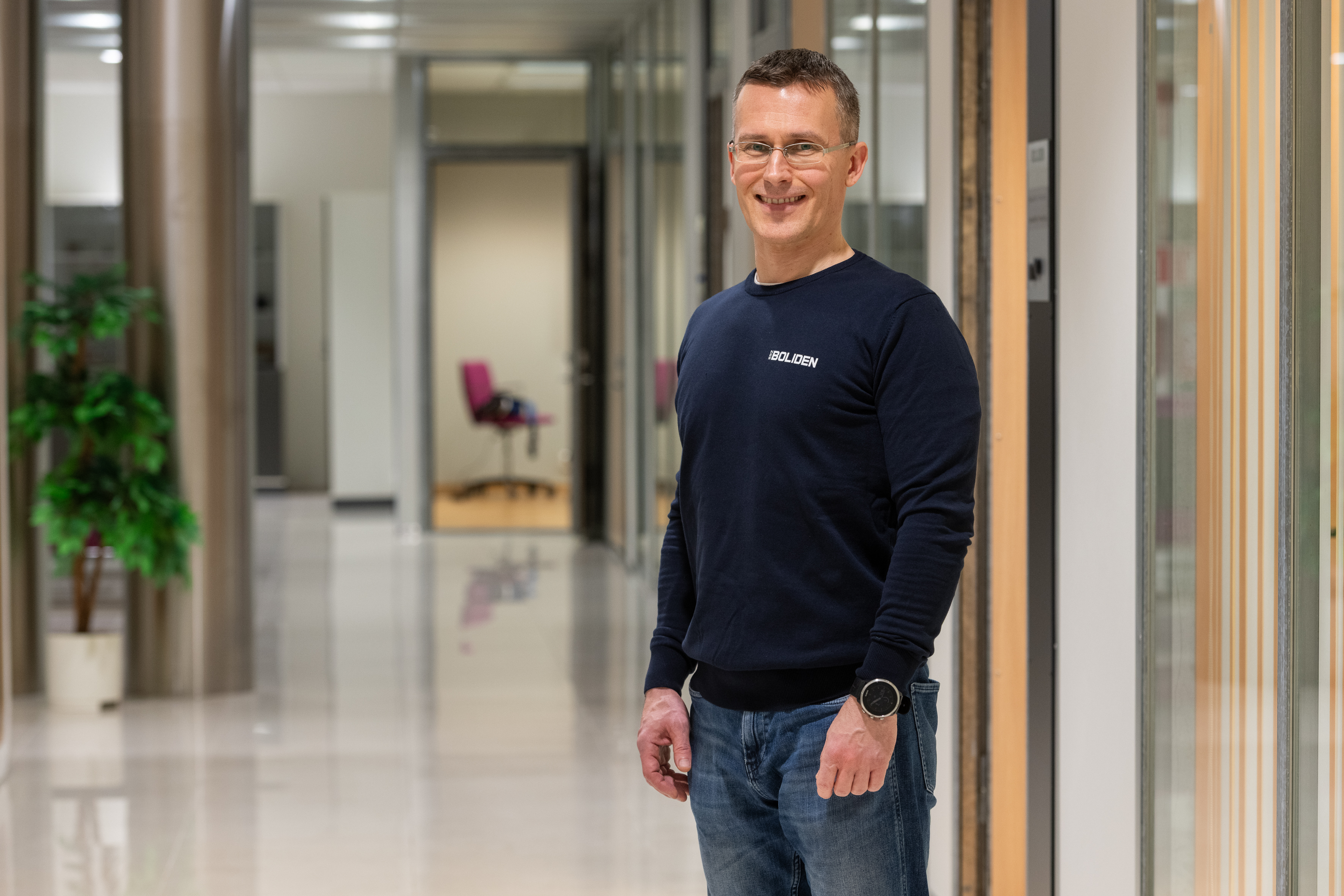Boliden Accelerates the Circular Economy with New Technology

A new innovative circular economy project brings significant climate benefits and opens up opportunities to move toward an almost zero-waste production process.
The Boliden Group, which recently celebrated its 100th anniversary, aims to be the world’s most climate-friendly and respected metals producer. From the perspectives of climate protection and the circular economy, this means improving energy efficiency, utilizing renewable energy, and making even more efficient use of raw materials—in other words, ensuring that as much usable metal as possible is recovered from materials and minerals extracted from mines.
One of the group’s most significant innovations is a new cement substitute material called SCMentum, which can be produced from slag generated at copper smelters and from mining waste rock. Thanks to this invention, material that previously ended up as waste can now be put to use.
Sasu Penttinen, Boliden Kokkola’s Director of Research, Development, and Technology, sees great potential in the development line related to further processing of slag, also for the Kokkola zinc plant. The matter is being investigated as a collaboration between the group and the smelters.
“From Kokkola’s perspective, the primary goal is that process waste generated in zinc production could in the future be utilized as a raw material for SCMentum, which would mean the zinc plant could move toward an almost zero-waste production process. As a result, the need for landfill space would be reduced to a fraction of the current amount, and in the long term, it could even lead to the beneficial use of materials already present in the landfill,” Penttinen explains.
Slag from Boliden’s copper smelters has previously been used to some extent as a filler in construction projects, but large-scale utilization has not been found.
“Boliden has developed the possibility of using slag from copper smelters in cement production. Currently, the potential for utilizing waste generated in Kokkola in the same process is being studied. SCMentum could at least partially replace traditional Portland cement.”
The carbon dioxide emissions of the cement type developed by Boliden are 95 percent lower compared to conventional cement, making this a truly significant matter for the climate as well.
Boliden is collaborating on the development of SCMentum with TCG, a leading technology company in the cement industry, and with the construction group Skanska. Skanska’s task is to test and trial SCMentum in several construction projects and monitor the material’s performance. In addition, Boliden is working with more than ten other international cement industry companies. Collaboration with industry players is important to standardize new cement-based products.
According to Penttinen, the company is currently preparing preliminary plans to build a demonstration plant of industrial scale in connection with the Rönnskär copper smelter near Skellefteå.
“The demonstration plant can be integrated into Rönnskär’s existing production process with smaller technical modifications, which keeps costs more reasonable, although it is still a significant industrial-scale investment. Once the process has been tested and refined, the goal is to apply it economically at all Boliden smelters.”
The new technology would also improve the recovery of metals from the zinc plant’s process waste.
“If technical development in metal recovery progresses as hoped, it will be possible in the future to extract, for example, silver from process waste currently landfilled in Kokkola. This metal recovery could have significant economic value as processes develop in the future,” Penttinen says.
Overall, the product development is positive from many perspectives: more climate-friendly SCMentum cement is produced, material efficiency and metal recovery improve, and the amount of process waste decreases.
There is not yet an answer as to when the new technology could possibly be implemented in Kokkola. According to Penttinen, what is very important now is that there is a clear product development pipeline and plans for further stages in utilizing process waste.
“It is very meaningful to be involved in designing a new kind of production that concretely reduces the amount of waste and promotes the circular economy and climate goals,” Penttinen says.
